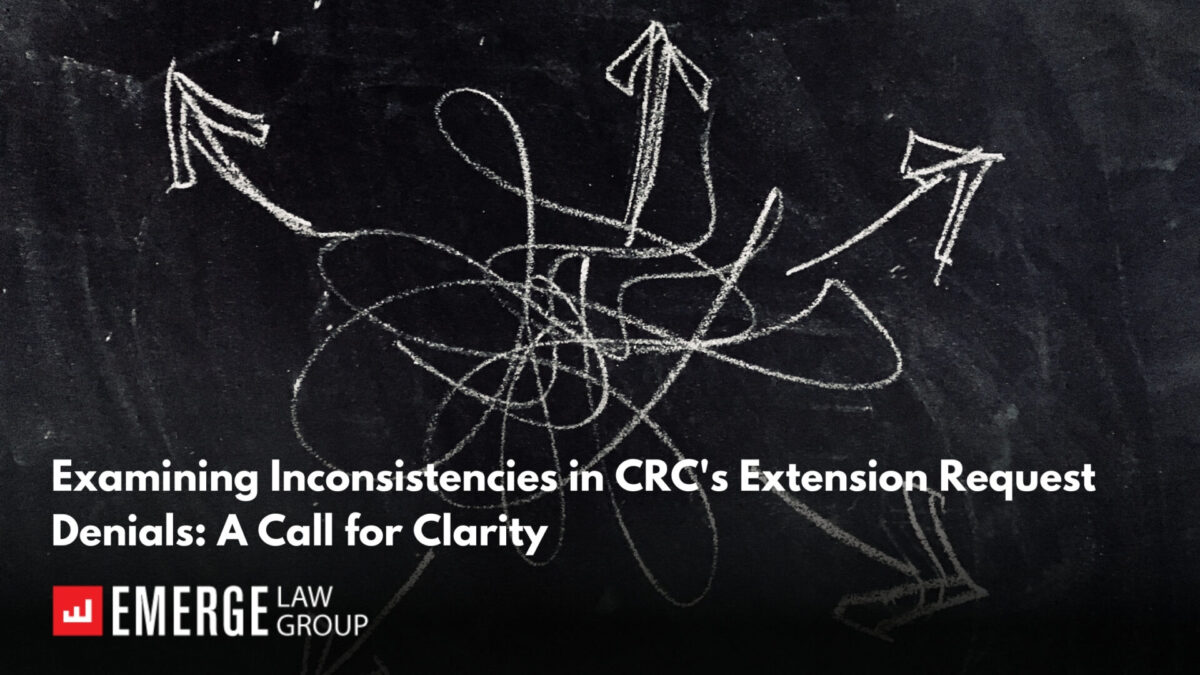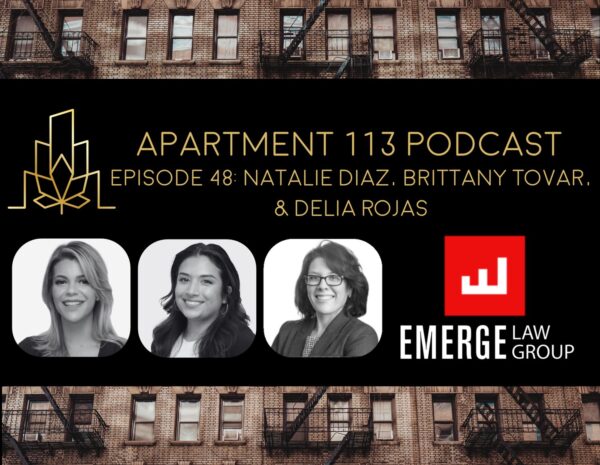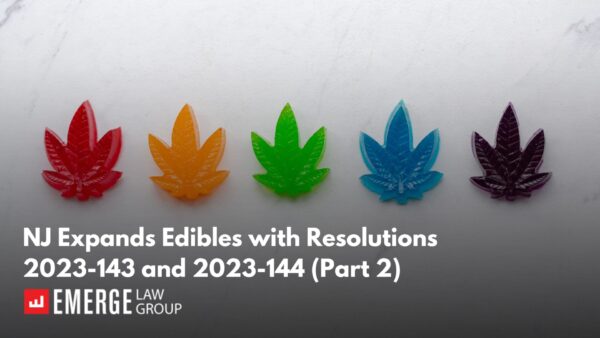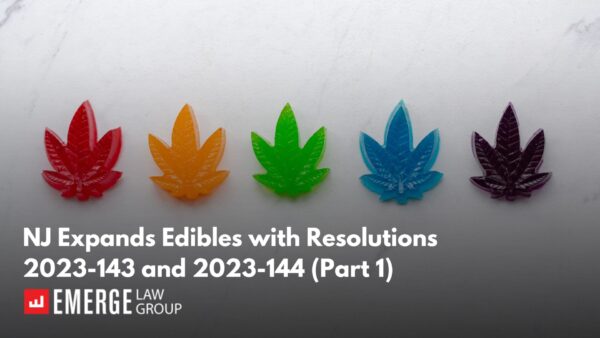Author: Natalie Diaz, Attorney
In recent times, concerns have surfaced regarding the New Jersey Cannabis Regulatory Commission’s (the “CRC” or the “Commission”) handling of extension requests, particularly when rejections are solely based on submission timing. Despite an initial dismissal due to a submission beyond the 15-day deadline, the CRC subsequently granted approval to at least two (2) extension requests to our knowledge. Significantly, these approvals, submitted after the initial deadline, give rise to inquiries about the reasoning and authority influencing the Committee’s decision-making.
Denying extension requests solely based on timing appears to conflict with Resolution 2023-70 and N.J.A.C. 17:30-7.6, both empowering the Committee to grant extensions for “good cause.” These regulations do not explicitly grant the authority to summarily deny an extension based solely on submission timing. Commissioner Maria Del Cid-Kosso emphasized at the June 1, 2023, CRC meeting that the 15-day deadline is advisory and not a mandatory condition for approval.
The contradiction arises when an extension request is denied without evaluating the evidence of “good cause,” going against the principles enshrined in Resolution 2023-70 and N.J.A.C. 17:30-7.6. These regulations acknowledge the challenges faced by applicants during the conditional license phase and emphasize the need for a fair and comprehensive evaluation of extension requests.
The denial of extension requests, solely based on submission timing, raises concerns about the arbitrariness of such decisions. Overlooking the “good cause” factors constitutes an arbitrary and capricious decision, potentially inviting legal action. Considering the Committee’s approval of extensions despite late submissions, there is a call for the Committee to reconsider and base decisions on the merits of the presented “good cause” reasons.
Neither Resolution 2023-70 nor N.J.A.C. 17:30-7.6 grants the Permitting and Licensing Committee the authority to deny an extension request solely due to submission within 15 days of license expiration. These regulations empower the Committee to approve an extension when substantial grounds are present. The current denial based on timing alone appears to deviate from the established regulatory framework.
In conclusion, inconsistencies in the CRC’s approach to extension requests underscore the need for clarity and transparency, particularly when approvals have been granted despite late submissions. This post serves as a call for the Committee to reconsider its denial of extension requests based on submission timing and adhere to the principles outlined in Resolution 2023-70 and N.J.A.C. 17:30-7.6. Ensuring fair and equitable treatment for all applicants is crucial for maintaining the integrity of the regulatory process.





